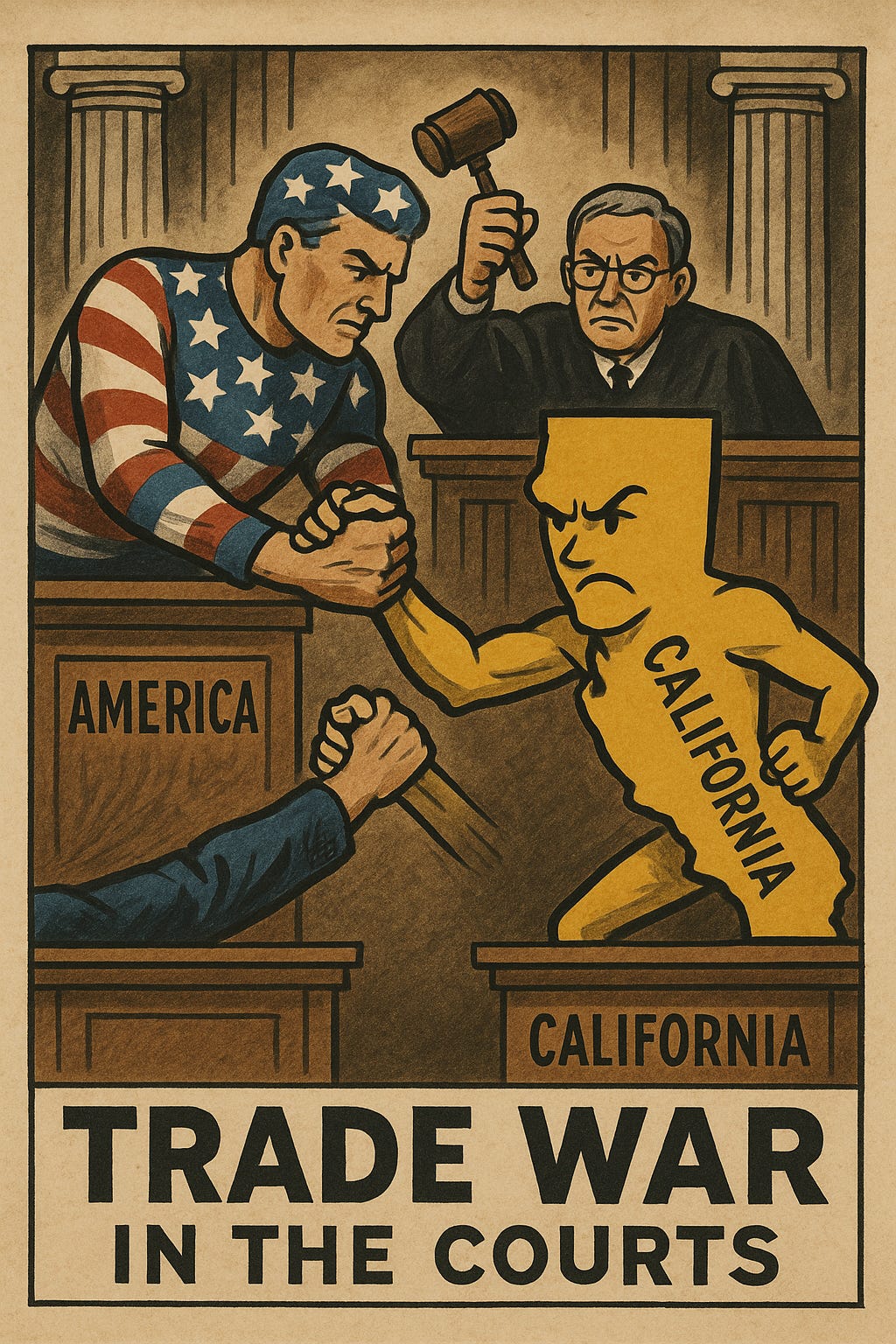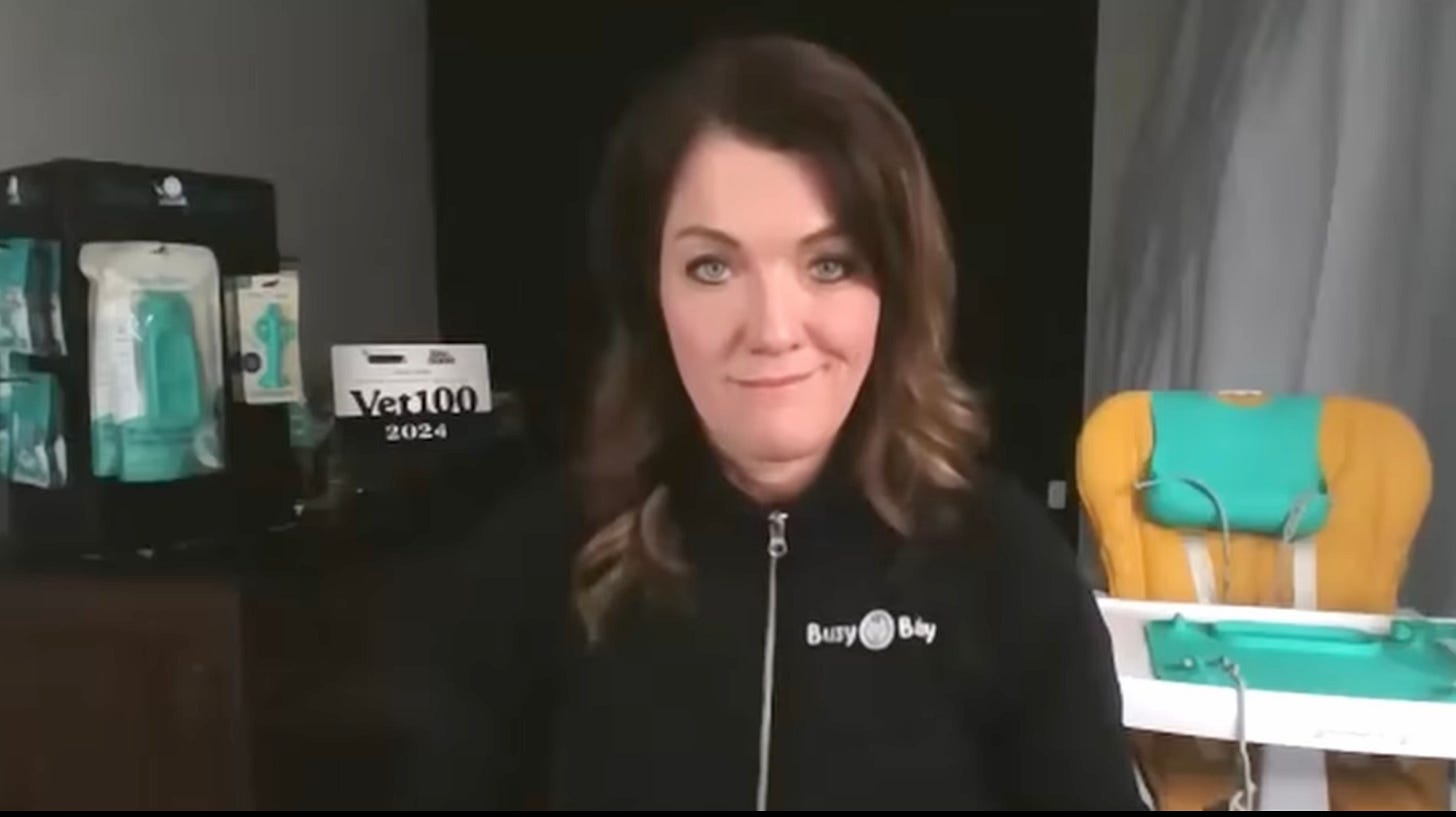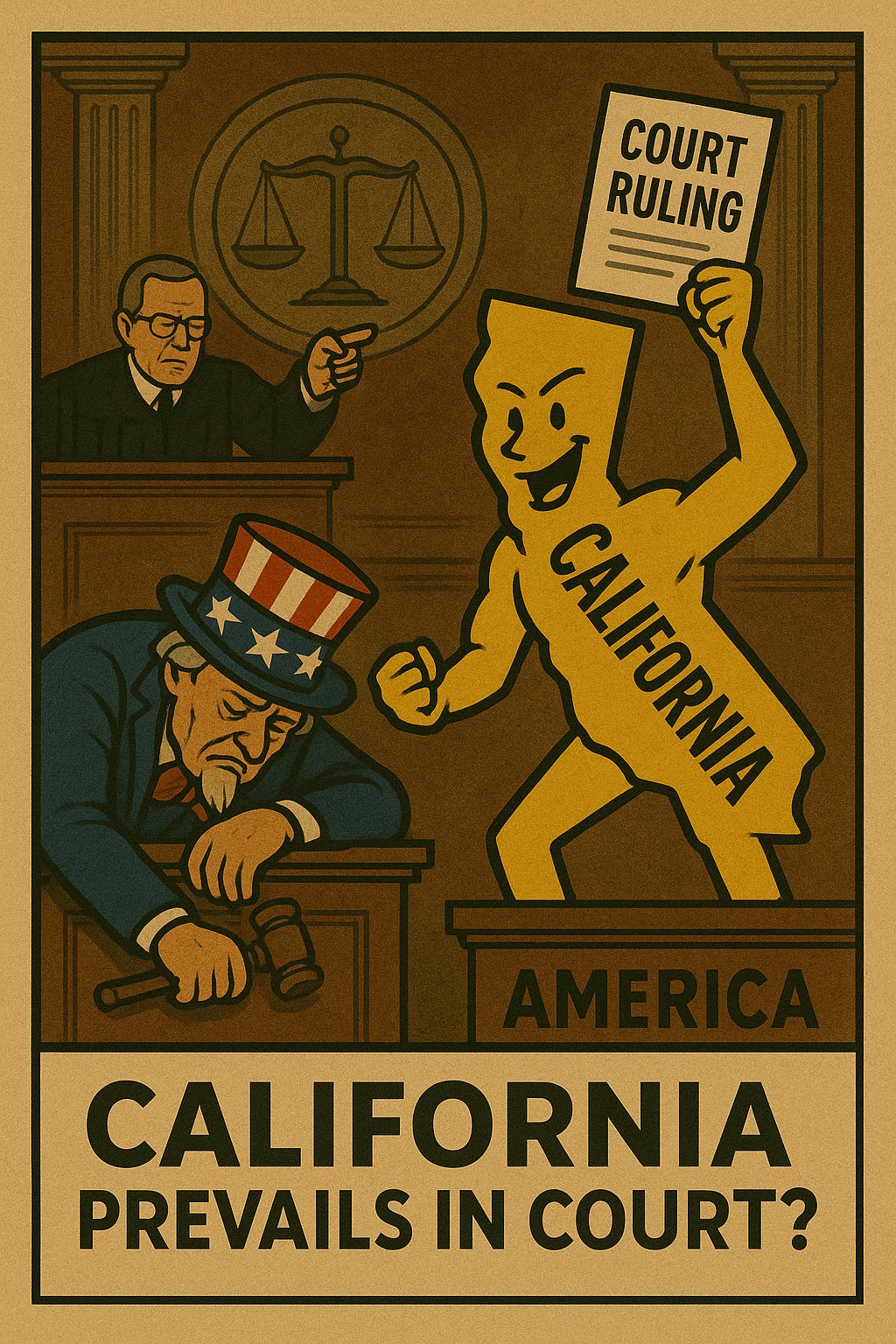California vs. Trump: The Trade War No One Wins
In general Americans want manufacturing to return to the US, the path to get there is still unclear
The U.S. has a trade war on its hands — not with China, but here at home.
California, with Gov. Gavin Newsom at the center, is leading a fight in the courts to stop President Donald Trump’s tariffs. The Golden State, on its own, is the world’s fourth largest economy. If the lawsuit succeeds, it threatens to upend the Trump tariffs.
More than that, though, it's setting up a clear dividing line: President Trump has argued his tariffs are a vital negotiating tactic and, for better or for worse, they’re his signature economic achievement. For his part, Newsom, the Governor of the number one manufacturing state in the nation, couldn’t be more clearly positioning himself for a run for President in 2028 if he wore a sandwich board sign.
Between Trump’s economic nationalism and Newsom’s legal challenges, though, are countless ordinary Americans caught up in this swirl of uncertainty. These are stories of economic disruption and, in some cases, looming catastrophe. And these folks just want hope and good policy from both sides of the aisle.
Faces of the Trade War
Beth Benike didn't set out to be the face of America's trade war.
As her signature Busy Baby Mat gained popularity with parents nationwide, and landed on Target and Walmart shelves, the Army veteran was focused on growing her Minnesota-based business, not navigating geopolitics.
She had expected tariffs to affect her business after President Trump’s election. She anticipated she would need an extra $20,000 on a shipment she was waiting on. But when President Trump’s sweeping tariffs on China rose to 145%, the expected $20,000 became $230,000, an amount she couldn’t afford. That’s how Benike found herself in an unexpected spotlight, sharing her story with Newsom on his podcast, "This is Gavin Newsom."
On the podcast, Benike explained how she tried for nearly two years to manufacture in America. The infrastructure wasn't there, though. Raw materials, specialized machinery, and production expertise were available in China, where minimum orders start at 2,000 units (a bet she could make) versus more prohibitive amounts such as 20,000 units that many American factories required.
Now, with her home leveraged against the business and inventory stranded overseas, she faces bankruptcy within months if she can’t get a resolution to tariffs or find an alternative in manufacturing.
"'Short-term' to the government might be a three- to five-year plan," Benike told Newsom's listeners. "For me, I literally will go out of business and lose my house that I live in with my children in four months."
Stuck in the middle
Hollywood is also caught in the crosswinds of this fight.
The industry, one very much in Newsom’s backyard, has faced a dramatic downturn in production — COVID shutdowns, a historic dual labor strikes, disruption from AI and computer advances (some of the reason behind the strikes), and the gradual exodus of filming to foreign locations offering competitive tax incentives.
The pain is real. Those who have for decades supported the film business, have gone out of business themselves: prop stores have closed, and skilled workers like camera operators and grips face longer periods between jobs and future uncertainty.
Trump's recent announcement of potential 100% tariffs on foreign-made films demonstrates his administration's theory: force production back to America by making foreign alternatives prohibitively expensive. On Sunday after a weekend meeting with Jon Voight, the Oscar-winning actor and one of Trump’s Ambassadors to Hollywood, President Trump declared the American movie industry was "dying a very fast death" due to incentives other countries offer to attract filmmakers. While he has diagnosed a problem many in California have felt acutely, his medicine raises a lot of questions.
For one, how does one tariff a movie?
Is it a fee on the physical media (a DVD) or a distribution rights, or a fee against the cost of production overseas? If there’s a tariff war on content, retaliation could upend a delicate balance in a hurting industry. There’s no guarantee tariffs would lead to more production in the US. Instead, there’s a lot of fear that they risk further damaging an already wounded industry, especially as retaliation would threaten an important export: Culture.
Instead of tariffs, on Monday Governor Newsom offered to work with President Trump to bring filming back to California, but suggested a $7.5 billion tax credit to incentivize filming.

Legal measures
When it comes to the tariff war, Governor Gavin Newsom and California Attorney General Rob Bonta have built their legal case against Trump on three key arguments:
That the President exceeded constitutional powers by imposing tariffs without Congressional approval
That the International Emergency Economic Powers Act (IEEPA) does not grant tariff authority
That the "major questions doctrine" requires clear congressional authorization for significant economic actions like these sweeping tariffs. (This is the standard that the Supreme Court used to strike down President Biden’s student debt relief.)
A couple of California liberals have some unlikely allies in the fight, including New Civil Liberties Alliance, a libertarian group supported by conservative billionaires Charles Koch and Leonard Leo, that is also suing President Trump in Florida over tariffs. A handful of Republicans, including Chuck Grassley and Rand Paul, have also indicated they will support measures asserting Congress’ role in tariffs.
Beyond courtroom arguments, Newsom has taken his case directly to the public through his podcast. The same episode featuring Benike included other business owners caught in the crossfire: A wheelchair manufacturing whose business saw a $600,000 order balloon to $1.4 million after tariffs. A restaurant owner who faces burdensome tariffs on already high priced foods.
While the stockpiling before the tariffs gave some confidence for a short-term trade war, there’s worry that in a few months, those supplies could run out. That urgency has many asking for answers.
Benike was frustrated with those in politics.
She pointed out that when her Democratic Governor delivered his state of the state, one side applauded and the other scowled. The same, she pointed out, happened at the President’s Address to a Joint Session, one side applauded and the other scowled.
What's missing in this bitter confrontation is a productive conversation about what Americans actually want to build. How could we manufacture products domestically again? Is there a feasible path to revitalize Hollywood production in America without punitive measures? These questions get lost amid extremist reactions on social media, where Trump is either painted as either a savior or saboteur.
California’s fight
California could win its case against President Trump. And when Newsom’s office was asked to comment on Trump’s threat of Hollywood tariffs they responded to that end. Newsom senior advisor for communications Bob Salladay told Deadline: “We believe he has no authority to impose tariffs under the International Economic Emergency Powers Act, since tariffs are not listed as a remedy under that law.” That case will be heard by the end of the month.
The question is what comes next. If California wins, will Trump just remove the tariffs? That seems unlikely — more likely an extended fight all the way to the Supreme Court and possibly in Congress’ hands. A Congress that has struggled to act to pass the tax bill President Trump has been demanding. So a quick resolution that Beth Benike needs for her business to survive? No. She’s likely stuck in the middle, as are many others.
Hollywood's decline preceded any tariff policy, and tariffs alone won't reverse it (and could have the opposite effect). Manufacturing left America through complex economic forces that can't be undone through presidential declarations. California's lawsuit may succeed in stopping Trump's tariffs temporarily, but it offers no longterm solution to the underlying issues that drove industries away.
If we had a politician who can strike that balance — acknowledging the legitimate pain of workers in declining industries while offering realistic plans to bring manufacturing back that don't rely on economic warfare — they could prevail in our next election.
For now, California hopes to block Trump's tariff authority through the courts, while many Americans caught in the economic crossfire wonder if anyone is truly fighting for their interests rather than political advantage.





